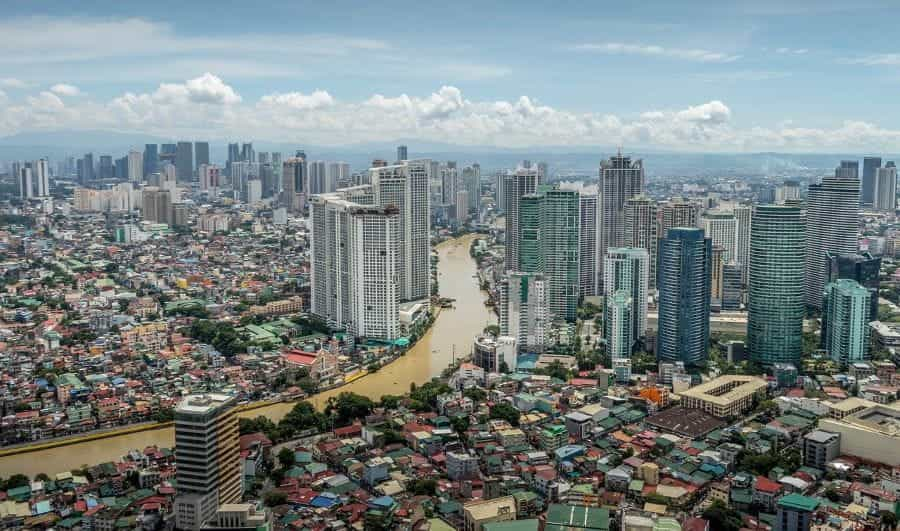Philippines Becoming Asia’s Gambling Capital
Asia is a continent that offers gamblers unlimited gambling options, but one country is setting the trend when it comes to gambling in the region. Whilst Macau has the allure of high-roller punters, it is the Philippines banking quarterly-growth exceeding all other competing markets, morphing itself into one of the continents biggest gambling hotbeds in the process.

Manilla city centre is experiencing an exponential growth in popularity of its state sponsored PAGCOR gambling operators, as the region begins to eclipse rivaling Macau in terms of top Asian gambling hotspots. ?AGDProductions/Pixabay
Philippines the Future of Asian Gambling
The Philippines certainly knows how to withstand the trials and tribulations of casino gaming, and it has become the region best known for offering land-based casinos that are unparalleled in quality. The venues littered across Manilla and Cebu have international notoriety, but it is the online gambling platforms – also referred to PAGCOR – these have seen a significant increase in engagement since the coronavirus pandemic. You can see the growth right across the market of online casinos in the Philippines, with the number of sites and traffic growing constantly.
The casino industry in the Philippines is booming since the turn of the decade and experiencing exponential growth over the past 12 months. Helping the cause is a series of corporate partnerships, ensuring the latest gambling products are featured in the city’s casinos, as well as a well-populated lineup of entertainers. The influx of external resources is transforming the Philippines into a gambling hotspot for international tourists, and more importantly, serving an intense demand from gambling enthusiasts.
Importantly, one deal between Electronic Gaming Equipment and the JPark Palace Casino materialized, setting the standard for quality casino gaming in the city. Giving the venue exclusive rights to their new range of gaming products has proved to be extremely beneficial to footfall and other key performance indicators.
PAGCOR Dominating the Market
Whilst it remains a government-controlled entity, the Philippine Amusement, and Gaming Corporation also known as PAGCOR continues to develop new revenue streams for the private sector in the Philippines. Operating since the late 1980s, the government agency controls the licensing and regulatory environment of the gambling industry in the country.
The breakthrough came in 2007 as the PAGCOR agency granted a series of new licenses to bingo halls, gaming cafes, and privately owned casinos. Since then the city of Manilla has become a vibrant epicenter of Asian gambling entrepreneurship and innovation. The industry has grown on a big scale, and in the present period, there are more than ten large-scale gambling operators located in the city.
The newfound dominance of the Philippines is plain to see, and many punters that would have normally gambled in Macau as turning their attention to the new frontier. Gambling is illegal throughout China, and the neighboring Philippines is only too pleased to welcome the industry to its doorstep and service the intense demand for quality land-based gambling entertainment.
Despite the law in China prohibiting its citizens from engaging in online gambling, it is estimated that over 120,000 Chinese citizens are actively using the Philippines gambling market, generating over $4.1bn in yearly revenues for the sector. This enormous revenue is not going unnoticed, and anybody with a keen eye on the financial figures will rightly recognize that this is a substantial increase of over 30% compared to the same period just 3 years ago.
Growing Pains During Prosperity
During the COVID-19 pandemic, the global gambling industry has been under extreme pressure financially, and the situation is no different in the Philippines. But unlike competing markets around Asia, the Philippines gambling industry is completely government-sponsored and PAGCOR holds the keys to an enormously profitable revenue stream for the country.
Several scandals have rocked the industry, most notably and indeed shocking was reports of human trafficking and slavery within the offshore POGOs. These operations operate in a legal grey area, and many critics dispute the benefits they bring in tax revenues, with major social disorder and organized crime linked to their core operation.
Whilst the public interest may save the ongoing gambling industry in the Philippines, private investors are not backing it completely to survive. But underestimating this mark of legitimacy is unwise, state approval of gambling is an immensely powerful tool for the long-term longevity of this industry. With the economic hardships of COVID-19 rippling through the domestic economy, the Philippines government may double down on their efforts to extend the gambling sector as a tool and means to relieve pressure on the country’s financial woes.
 Online Casinos UK
Online Casinos UK



